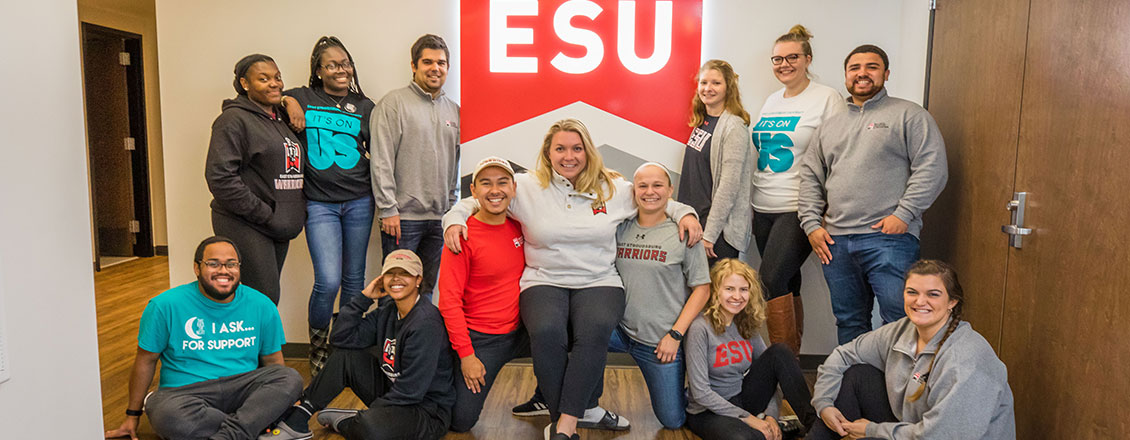
Bystander Intervention
Step Up!
Step Up! is the active bystander intervention program that is being implemented across campus. While many times “doing the right thing” happens naturally, sometimes we don’t think we have it in us to do so. Step Up! outlines the mental processes at work so that we can be aware of how to better handle situations that call for an active bystander.
- Notice the event - During this step you are becoming aware of what is going on.
- Interpret the problem - After you've noticed something is going on, you begin to make sense of things. During this step you may ask others to clarify what you believe you've seen, gather other facts and opinions on what is going on, and determine if there is a problem that requires intervention.
- Assume personal responsibility - It's important to assume responsibility for the situation. Even if there are other bystanders, don't assume someone else will help even if you don't. Develop a game plan and think about the pros and cons of what will happen when you help.
- Know how to help - How are you going to help? What strategies can you use? Know what resources you have around. Remember, never put yourself in a harmful situation. If there are multiple strategies you can use, assess the benefits of each before deciding on one.
- Step Up! - Once you've decided on the course of action, follow through with your plan.
By using these 5 steps, you can make sure that you more effectively handle complicated situations.
Contact Us
Contact Information
- Campus Address
- Sycamore Suites, Lower level, 025
- Phone:
- (570) 422-3298
- Title of Department Leader
- Coordinator, Wellness Education & Prevention
- Name
- Kayla Simon
- E:
- ksimon6@esu.edu
- Phone:
- (570) 422-2734



